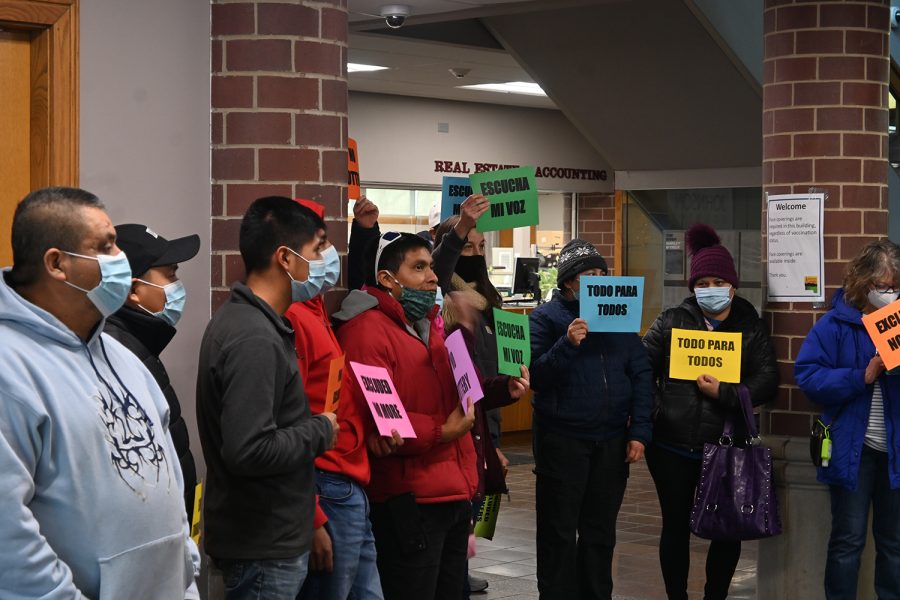The 30 University of Iowa faculty members on the school’s “research track” can now be assured their positions at the UI are secure.
In a unanimous vote on Tuesday night, the Faculty Senate permanently approved the research track.
UI officials originally approved the track in 2008 for a five-year trial. It allows faculty members to be hired with a primary focus on research. Officials then appointed a committee to review the track and make a recommendation to the Faculty Senate.
“We’ve found that there is a high level of satisfaction among research-track faculty,” Faculty Senate President Erika Lawrence said. “The Research Track Committee unanimously voted to recommend that the research track be retained permanently.”
The Colleges of Medicine, Pharmacy, and Public Health have adopted the track. Thirty faculty members have been hired on the track, all in the Carver College of Medicine.
UI internal medicine Professor Francois Abboud said the track is important because it allows faculty members to focus on research to the extent a tenured member of faculty cannot.
“The research faculty is expected to become a more independent thinker in terms of science,” he said. “To come up with new ideas — to be a leader. We are identifying the need for enhancing our research ability by hiring people who can be creative and independent.”
Edgardo Rodriguez, an assistant professor of internal medicine on the research track, said he is pleased with the liberty he has to create new research and collaborate with tenured faculty.
“Now, as the years have gone by, I’ve really gotten a clear understanding of what my role is and I’m extremely satisfied with that role,” he said.
Researchers are responsible for securing their own funding through grants; Assistant Professor Kelly Messingham, who is on the research track in dermatology, said she understands the risk in that but still loves what she does.
“My time and responsibility aren’t divided into service and teaching, and I focus really primarily on doing research,” she said. “It’s a high-risk reward. I get to do what I want, and I know there’s a risk, and I’m fine with that.”
The Research Track Committee compiled the opinions of research-track faculty and college administrators. Some of the recommendations that were made by those surveyed included a desire for research faculty to have representatives in shared governance bodies such as the Faculty Senate and the desire for them to be able to work more closely with graduate students.
“As a result of the review, we did propose some recommendations that may be considered by Faculty Senate,” Lawrence said. “Starting in the fall, we will begin to discuss those.”
Before the vote, some faculty senators expressed concerns about approving the track before discussing changes and concerns about what the track would mean for the future of tenured faculty.
“From the research-track faculty perspective, we believe our role is intimately linked to the existence of a strong tenured program,” Rodriguez said. “I am in full support of this track.”






